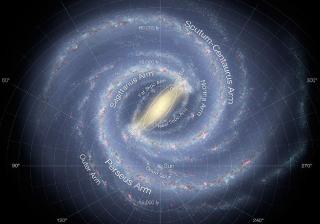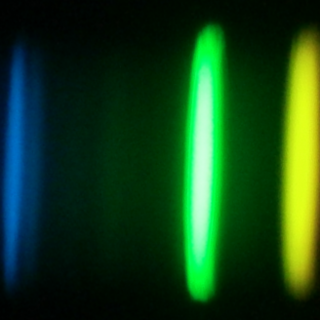Bibcode
López-Corredoira, M.; Allende Prieto, C.; Garzón, F.; Wang, H.; Liu, C.; Deng, L.
Bibliographical reference
Astronomy and Astrophysics, Volume 612, id.L8, 4 pp.
Advertised on:
5
2018
Journal
Citations
25
Refereed citations
23
Description
Context. The maximum size of the Galactic stellar disk is not yet known.
Some studies have suggested an abrupt drop-off of the stellar density of
the disk at Galactocentric distances R ≳ 15 kpc, which means that
in practice no disk stars or only very few of them should be found
beyond this limit. However, stars in the Milky Way plane are detected at
larger distances. In addition to the halo component, star counts have
placed the end of the disk beyond 20 kpc, although this has not been
spectroscopically confirmed so far. Aims: Here, we aim to
spectroscopically confirm the presence of the disk stars up to much
larger distances. Methods: With data from the LAMOST and
SDSS-APOGEE spectroscopic surveys, we statistically derived the maximum
distance at which the metallicity distribution of stars in the Galactic
plane is distinct from that of the halo populations. Results: Our
analysis reveals the presence of disk stars at R > 26 kpc (99.7%
C.L.) and even at R > 31 kpc (95.4% C.L.).
Related projects

Morphology and dynamics of the Milky Way
This project consists of two parts, each differentiated but both complementary: morphology and dynamics. Detailed study of the morphology of the Milky Way pretends to provide a data base for the stellar distribution in the most remote and heavily obscured regions of our Galaxy, through the development of semiempirical models based on the
Martín
López Corredoira

Chemical Abundances in Stars
Stellar spectroscopy allows us to determine the properties and chemical compositions of stars. From this information for stars of different ages in the Milky Way, it is possible to reconstruct the chemical evolution of the Galaxy, as well as the origin of the elements heavier than boron, created mainly in stellar interiors. It is also possible to
Carlos
Allende Prieto